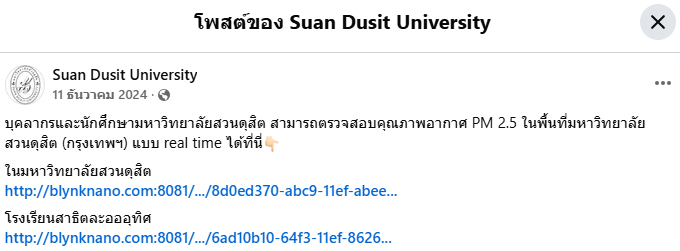Safety as the Foundation of Sustainable Mobility
In 2024, Suan Dusit University—including all campuses, educational centers, and the La-or Uthit Demonstration Schools—received the “Safe Educational Institution” award from the Department of Labour Protection and Welfare. Notably, the Bangkok campus has received the award for six consecutive years (2019–2024), while the Suphanburi campus has received it for five consecutive years, reflecting a systematic approach to environmental and safety management across all learning spaces.
Within the evaluation criteria, there is a category on “traffic and transportation safety in educational institutions,” which requires campuses to provide safe pedestrian and bicycle routes, orderly parking areas, and measures to regulate driving behavior within the university grounds.
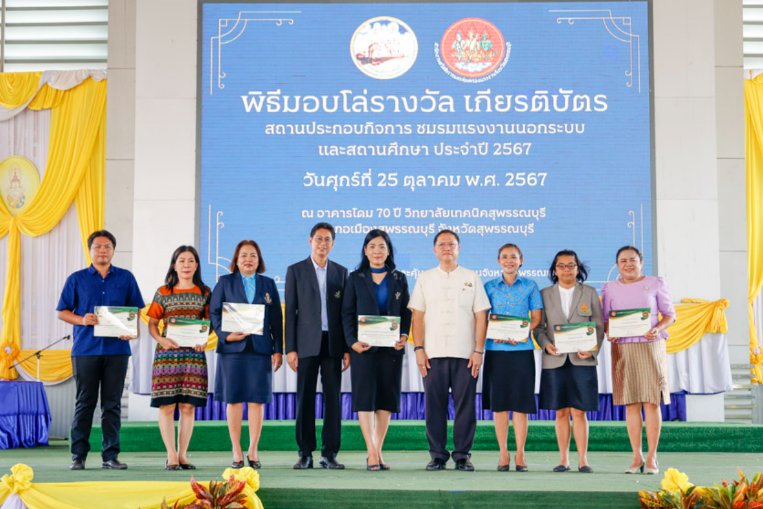
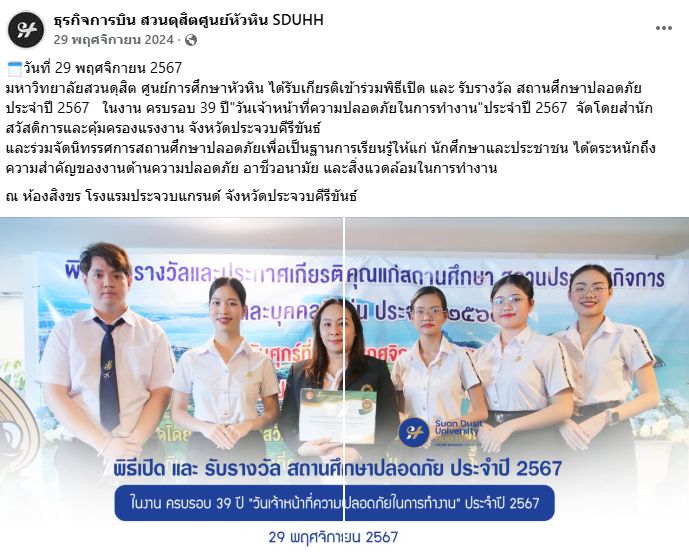
Suan Dusit University places importance on sustainable mobility in all dimensions, integrating environmental considerations, well-being, and personal safety. The management of walkways, driving practices, and internal transportation systems is therefore not merely a matter of convenience, but part of cultivating an environmentally friendly campus culture—one that meaningfully connects people’s everyday lives with the broader community.
Clean Spaces, Safe Walkways, and an Environment that Supports Mobility
The university collaborates with the Dusit District Office to improve the landscape, clean roads and sidewalks, and maintain surrounding areas, ensuring that travel routes within the university are safe and orderly. Additional tree planting not only provides shade, but also helps reduce temperature and enhance air quality within the campus learning environment in the heart of the city.
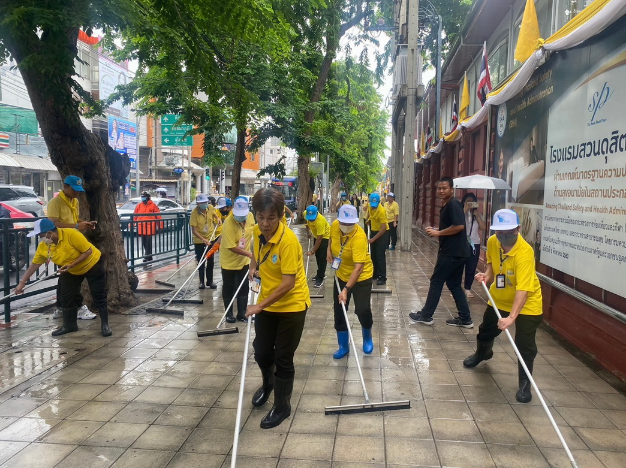
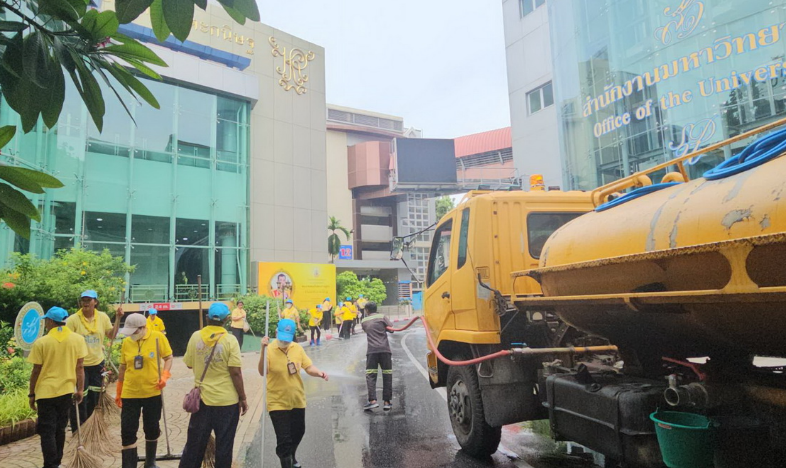 Collaborative Efforts to Build a Safe City through Traffic Volunteer Training
Collaborative Efforts to Build a Safe City through Traffic Volunteer Training
The university collaborates with the Samsen Metropolitan Police Station, the Vajira Hospital Faculty of Medicine, and other educational institutions in the Dusit district to organize training and awareness activities on traffic management. The initiative aims to build a network of “community traffic volunteers” and to promote the participation of students, staff, and local residents. This program helps reduce the risk of road accidents and raises awareness regarding the safe and disciplined use of public spaces.
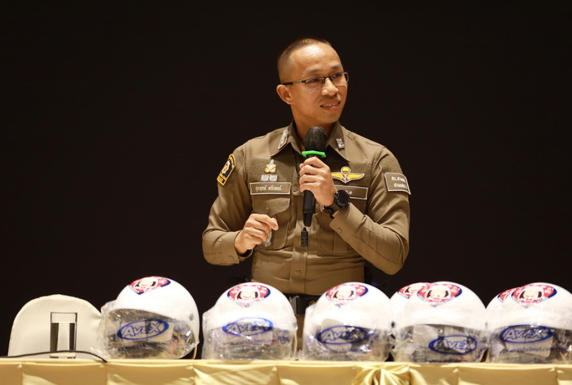
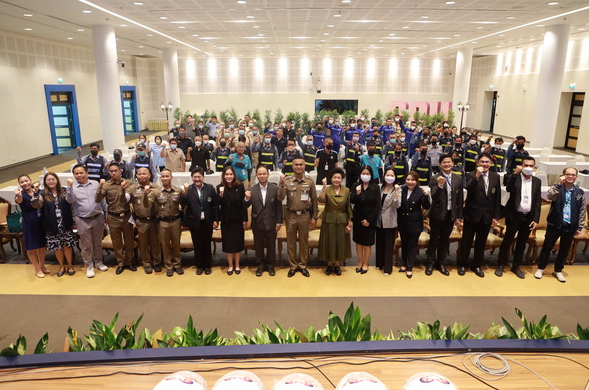
User-Friendly Internal Traffic System and Pick-Up/Drop-Off Points
The university has designed an orderly system of parking areas and pick-up/drop-off points, and provides free shuttle and circulator services during periods of high user volume, in order to reduce traffic congestion and lower carbon emissions from private vehicle use. Meanwhile, the La-or Uthit Demonstration School has established clear guidelines for the safe pick-up and drop-off of students, including designated parking limits and compliance with traffic staff instructions, to maintain order and ensure the safety of all students.
Safe Driving and Helmet-Wearing Campaign
Within the university grounds, a helmet-wearing campaign is implemented for motorcycle riders, particularly at the Science Center, where motorcycle use is most concentrated. This campaign has become part of the daily routine for staff and students, forming a core element of the university’s safety culture ensuring that every journey begins with responsibility for one’s own life and the lives of others.
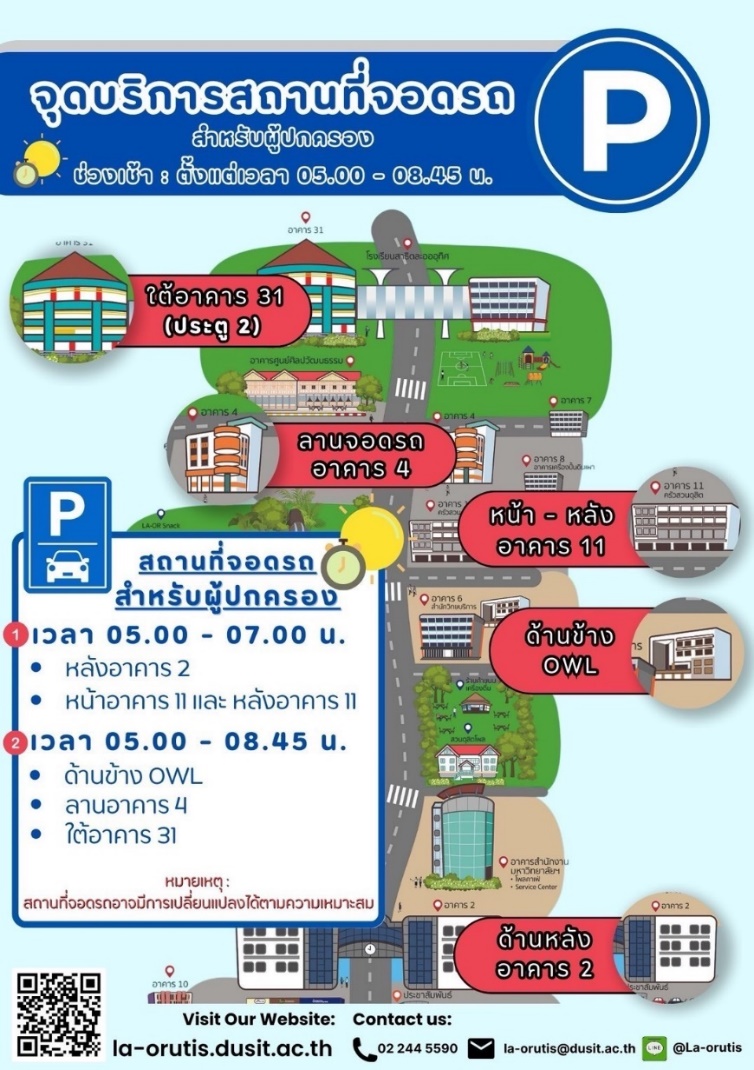
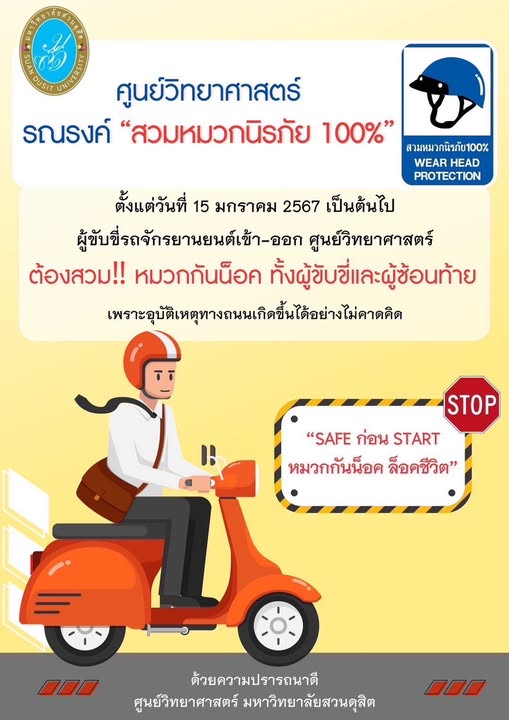
Monitoring Traffic Information and Reducing Impacts on the Urban Community
Suan Dusit University is located in the Dusit district, a central transportation area, and therefore places importance on communicating updates regarding road closures, nearby rail construction, and major events. This allows staff and students to plan their travel appropriately, encourages the use of public transportation, and helps reduce traffic congestion in this historically and culturally significant high-density urban area.
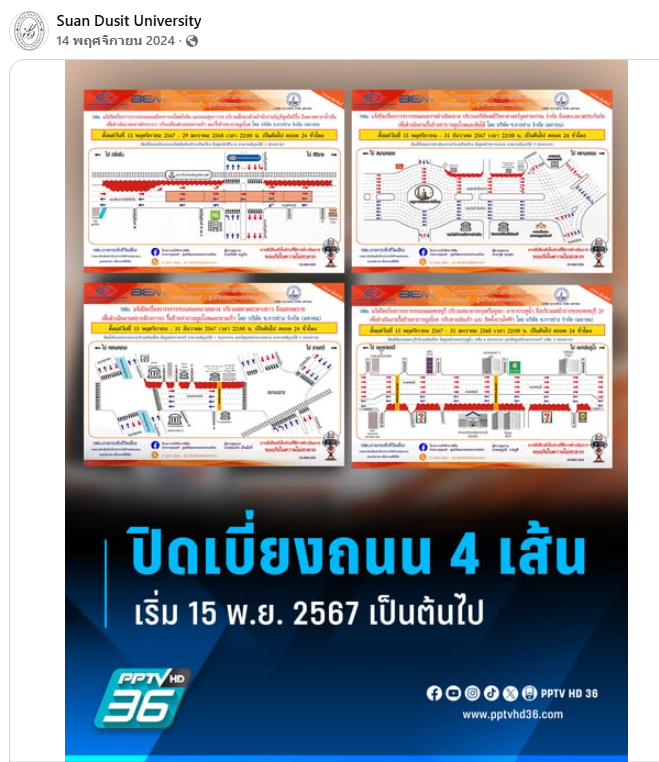
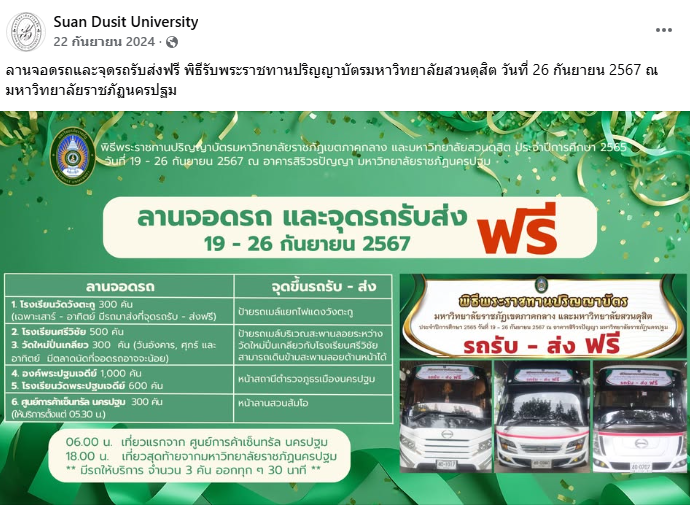
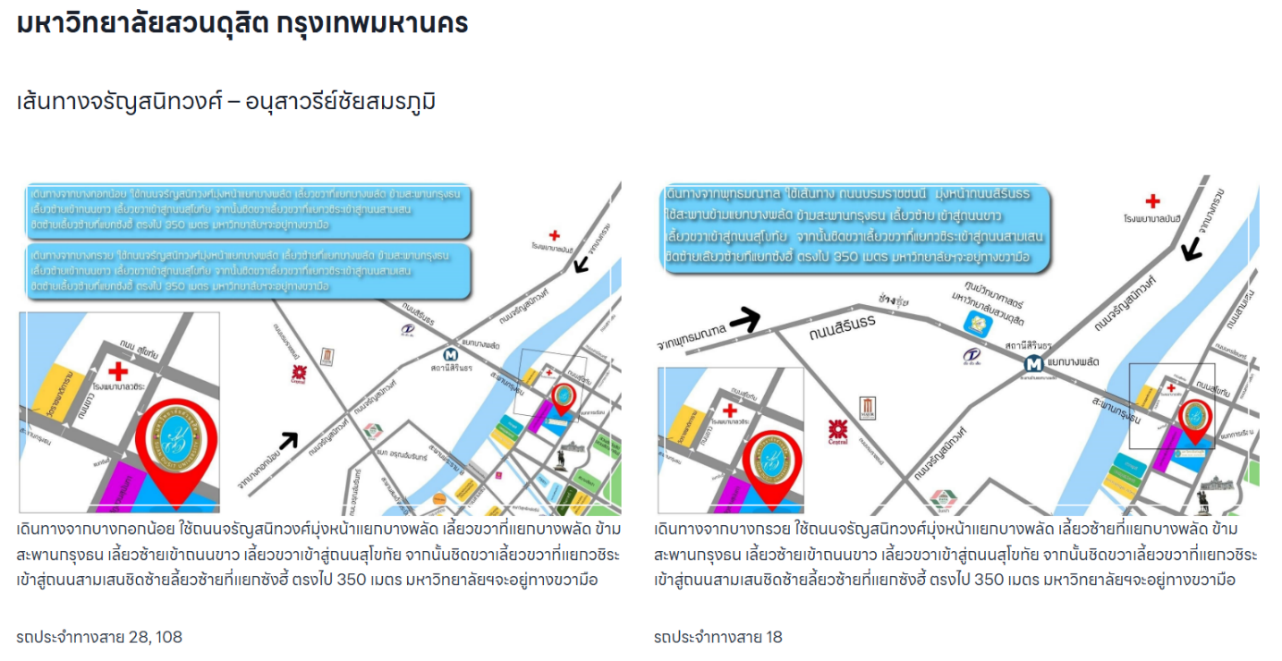
Realtime PM2.5 Air Quality Monitoring System to Support Sustainable Mobility
Suan Dusit University recognizes the importance of air quality in learning and commuting environments. Therefore, the university has installed a realtime PM2.5 monitoring system in key areas, including:
• The Central Academic Building, Suan Dusit University (Bangkok)
• La-or Uthit Demonstration School
• Suan Dusit University Science Center
The system displays particulate levels and overall air quality through onsite monitors and online platforms, enabling staff, students, and the public to check conditions in real time. This allows individuals to plan their travel appropriately for example, choosing to walk or cycle on days with good air quality, or avoiding outdoor travel when pollution levels are high.
Additionally, the university has developed infographics and warning signage to communicate information clearly and consistently to campus users.
This approach is not only part of environmental management, but also serves as an important tool to promote sustainable mobility behaviors and raise awareness of the impact of air pollution on everyday life.
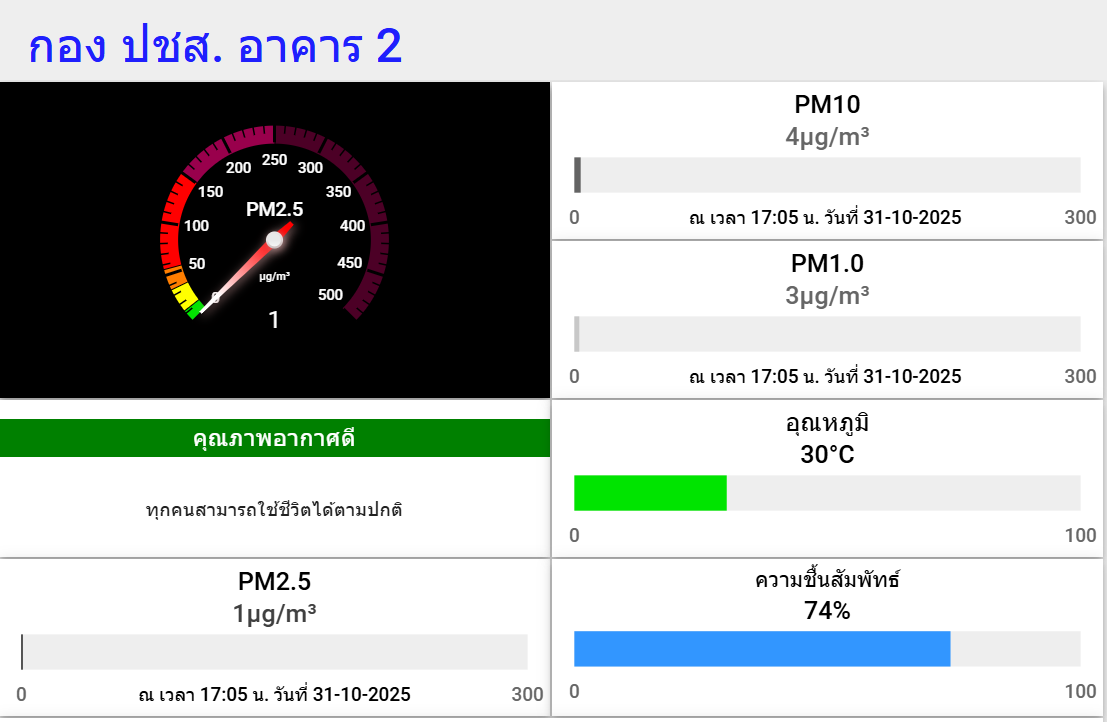
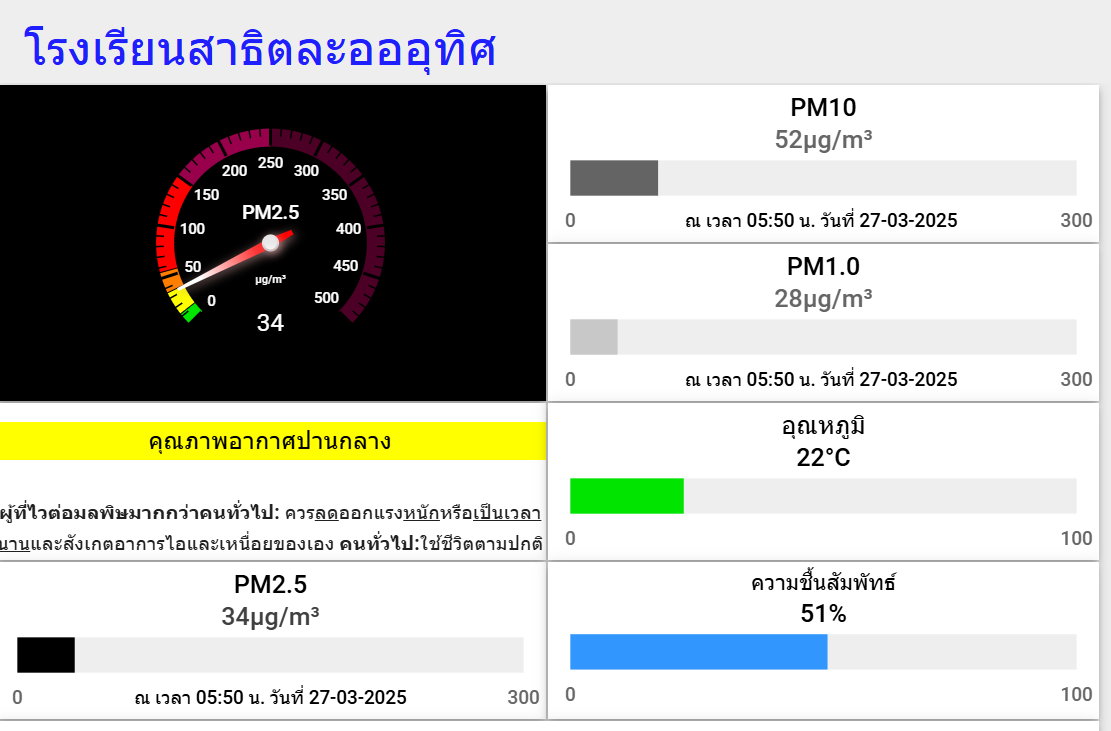
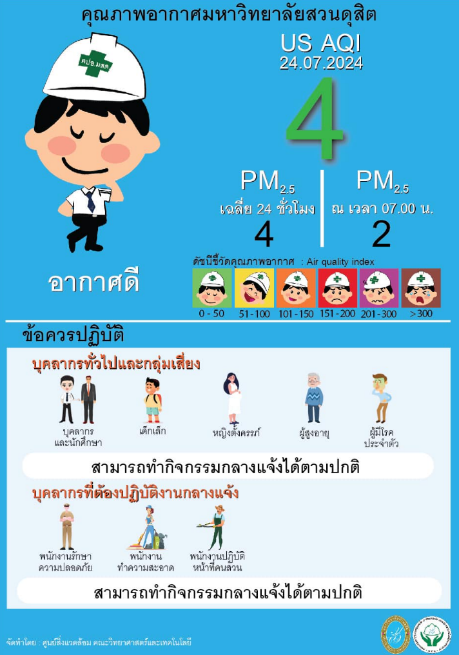
Sustainable Mobility as a Means of Connecting People with the Cultural Landscape of Dusit
In Bangkok, Suan Dusit University places strong emphasis on promoting sustainable cities and communities, recognizing its role as a “University within the City” located at the heart of the cultural district of Dusit—an area rich in history, the Khlong Samsen canal, temples, preserved architecture, and valuable community ways of life (in alignment with SDG sub-indicators 11.2.1–11.2.6).
The university has therefore established sustainable mobility approaches both within and around the campus, linking mobility with learning and cultural preservation in the district. This approach encourages staff, students, and visitors to walk as a way to appreciate the urban aesthetic and learn the stories of the neighborhood through cultural learning points, alongside the use of public transportation and shared mobility systems.
The objective is to reduce reliance on private vehicles and decrease air pollution, while strengthening meaningful connections between people and the cultural identity of the Dusit area.
Walk, Run, and Cycle Sustainably: Fostering Well-being and Community Bonds in Suan Dusit
Suan Dusit University recognizes that sustainable mobility is not only about reducing car use or carbon emissions, but also about “movement that supports well-being and strengthens social connection.” Therefore, the university has organized and participated in walk–run activities to promote physical and mental health while cultivating a participatory community culture in various areas. One such event is the Healthy and Happy SDU SP Walk & Run 2024, held at the Suan Dusit University Suphanburi campus. https://www.dusit.ac.th/home/2024/1383748.html and the participation in the “Walk–Run–Cycle to Prevent Stroke: 10th Event” organized by the Nakhon Nayok Education Center to honor His Majesty the King on the auspicious occasion of His 72nd Birthday Anniversary (6th Cycle). The activity was carried out in collaboration with government agencies and local community groups in Nakhon Nayok Province. These activities promote the concept of “mobility for well-being,” which aligns with sustainable mobility in everyday life—because every step taken reduces dependence on fossil fuel-based transportation, thereby contributing to the reduction of greenhouse gas emissions released into the atmosphere. https://www.dusit.ac.th/home/2024/1366623.html
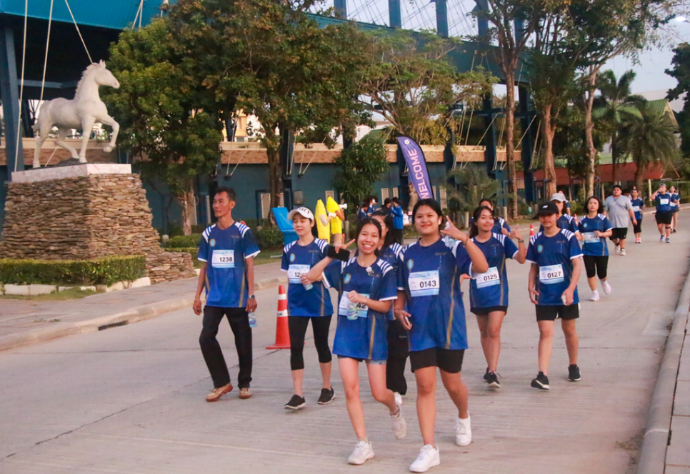
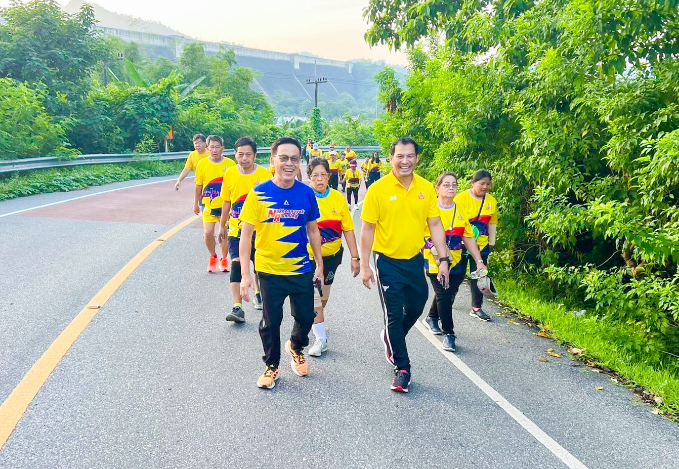
Reducing the Use of Personal Vehicles through Green Office Activities
Suan Dusit University has implemented the “Green Office” initiative to promote the exchange of good practices in energy reduction, waste management, and efficient resource utilization. As part of this initiative, guidelines for sustainable transportation are introduced, such as the use of shared shuttle services and online communication systems to reduce reliance on personal vehicles. The outcomes and practical approaches are shared across internal units through the activity “Casual Conversations: Ideas into Practice,” Session 253(27), themed “Green Office”, to encourage broader adoption across the university.
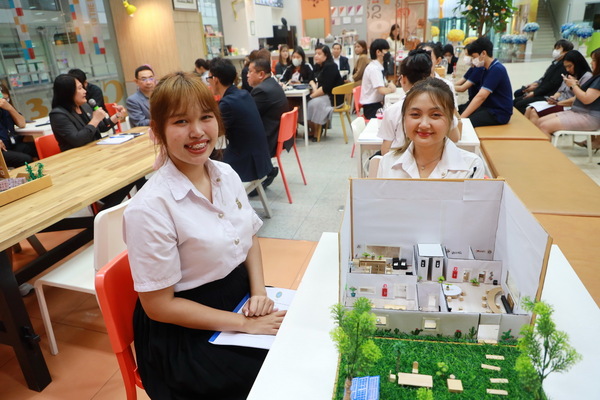
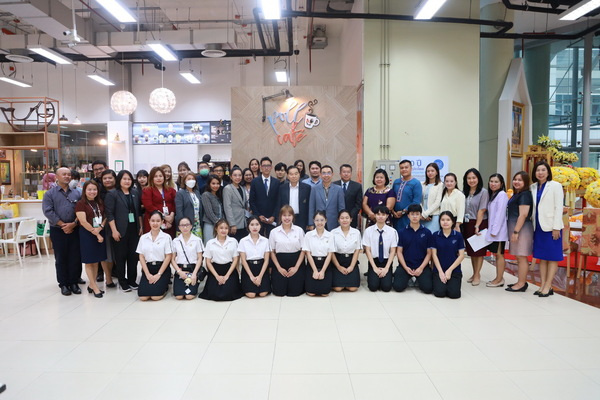
The implementation of sustainable mobility at Suan Dusit University has been continuously and comprehensively advanced across all dimensions—ranging from institutional policies integrated with environmental, energy, and resource management, to practical actions carried out across campuses and education centers in both Bangkok and the regions.
The university has developed a transportation system that balances safety, well-being, and environmental responsibility, including the establishment of safe pedestrian paths and pick-up/drop-off points, helmet safety campaigns, traffic volunteer training, and the promotion of walking, running, and cycling activities to support healthy lifestyles. These efforts reflect the concept of “mobility that creates value” for both individuals and the surrounding community.
This approach directly aligns with SDG 11: Sustainable Cities and Communities, particularly indicator 11.4.2, which supports transportation models that reduce environmental impact and enhance urban quality of life.
Every step taken, every route traveled, and every activity organized within Suan Dusit University illustrates a shared commitment to building a safe, environmentally friendly, and empowering society, contributing to a sustainable future for all.

